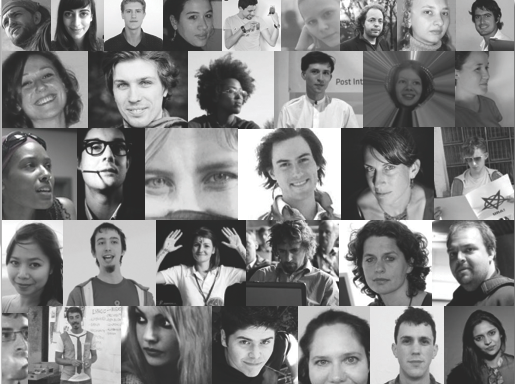
Edgeryders 1 is complete. It’s generating a set of recommendations that you can read (and poke holes into) here and a Handbook for Policymakers to be published at the end of the year. As a listening experiment Edgeryders has already achieved more than we formally set out to do. On behalf of everyone on the team, thank you from the bottom of our hearts to everyone who contributed towards this!!! Every mission report, every comment, every tweet makes a difference. By being on the Edge, people are providing valuable service to society. This service does not go recognised.
The Edgeryders project started with the Council of Europe and the European Commission wanting to understand one of Europe’s most pressing set of issues: young (and not so young) people who navigate unstable environments, who question the return on investment of formal education, who don’t have a space in labour markets or simply step away from traditional channels of political participation; basically those who do things that don’t show up in statistics or official reports because there aren’t instruments to measure the type of work they do. And so the Edgeryders distributed think tank was born: an open, online, highly interactive platform where people from all corners of Europe and beyond come together to meet one another, share their struggles and equally the creative solutions they find; and collect everything into a fresh vision of what the future may hold for young Europeans if the right instruments are in place to support their work. Over the last year we have come across multitudes of initiatives with experimental and alternative answers to the question of how we want to live in the future while facing enormous challenges (climate change, lack of resources, new forms of mobility, gentrification, unequal chances in the educational system etc). We all agree that we need a lot of innovation to solve large urgent challenges like global warming, ensuring food security, dealing with the fallout from financial crisis, upgrading our educational systems to better prepare our young. Radicalism is a cheap way to try new things that with small probability may work. But it costs a lot in personal terms to the individuals engaging in it. I have done many presentations like this one at TEDx where I mention some of the community members and initiatives we have come across. These initiatives are often precarious and lack long term perspectives. Most of the time they don’t have access to political decision-making influencing their fate or even to a contact person in the political system. We are seeing this situation all over Europe with different levels or areas of government setting policies that fail to join up. The result being that citizens AND people working for institutions are trapped between policies that make competing, often contradictory, demands.
Recommendations to policy makers are all good and well. However we cannot ignore the fact that policy instruments and processes to support the adoption of radical solutions to our most pressing issues are just not in place. If we want to be able to ensure that citizens and institutions have the means to be able to affect change and implement much needed creative solutions, we need to be sure that the processes and policy instruments that enable this are there. And If they don’t exist we need to build them.
Edgeryders came to play ball and we are not asking for permission.
It may not seem like it because institutions are slow and resistant to change but the Edgeryders project has already had an impact. So much so that the European Commission and Council of Europe are giving us a formidable challenge: breaking new ground in the fight against precarisation, social exclusion and poverty. This time the community is setting the agenda and pace, and are summoning the policy makers and other stakeholders to get in the game. It’s really very simple: They can talk to people who are actually willing to engage constructively to serve the common good. Or they can deal with the other radicals when people lose patience with institutions’ inabilities to deliver results.
-
We’re going to figure out how the community and different institutional actors including the Council of Europe and the European Commission can help individuals achieve local acknowledgement, unlock local resources and diffuse their ideas internationally.
-
We’re building a new platform driven and implemented by the community to better support the community members needs and facilitate collaboration on concrete initiatives. And to inspire and support those who are not yet aware of their capacity to improve conditions for themselves and others.
-
We’re going to position Edgeryders as a viable alternative for generating independent, democratically legitimate, high quality knowledge work on wicked problems. Bottom up.
-
We’re going to surface policy technicians who can help flesh out general recommendations into technically sound, pragmatic policy measures that cannot be dismissed for being unrealistic.
-
We’re going to turn Edgeryders into a powerful machinery for generating proof of concept of radical solutions. For getting them on the policy agenda and for creating the political willpower amongst competing politicians to adopt them.
Save the date for the first week of December, let us know if you want to participate and if you’re up for volunteering around one of the 5 goals above ( email us at edgeryders@gmail.com). Welcome aboard Edgeryders reloaded! It’s going to be a wild ryde. P.S if you’re in the SPIRAL community of practice, this could be a great opportunity to put forward some challenges in your local environment that you would like the Edgeryders to help address.